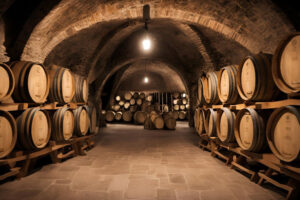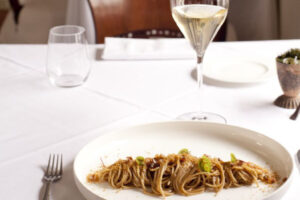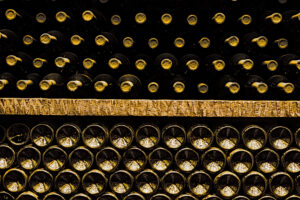Bad news for Italian pasta manufacturers and also for the large and historic Italian community living in Argentina - a 1 million euro “blow” to Italian pasta imports, reports the press agency ”Il Velino”, confirming the news that circulated a few days ago in the “Gambero Rosso” magazine. And the ban is not limited to just the queen of Italian cuisine, “but all food products of foreign origin,” explains the embassy, “that have equivalent products on the Argentinean market, in order to support local products and reduce imports.” The block also includes balsamic vinegar and German beer.
Everything seems decided: “although there are still some formalities”, reports the ”Il Velino” agency from the embassy, “the Secretary for Internal Commerce, Guillermo Moreno, has already announced his decision to the food distribution chains”. This decision will certainly shake up those who fear the restoration of protectionist policies, confirms the Argentine Minister of Economy, Amado Boudou, “behaving commercially correctly, opening our markets to the world but then not being able to export lemons to the United States may be romantic, but it’s also a very naive idea”.
And “Tucuman” lemons are the “casus belli” that has dealt a blow to Argentina-US. Trade relations, according to reports, due to some limitations that America introduced because of a disease that affected citrus fruits.
Meanwhile, from Brussels, eventual problems that may come up because of Buenos Aires closing down have been noted. The European Union - in a statement released in Buenos Aires - urged Argentina to lift restrictions on food imports and warned that not doing so “would be inconsistent with the rules of the World Trade Organization (WTO)”. According to “Il Velino” the 27 Member States of the EU “have formally challenged the Argentinean authorities regarding the restrictions on food imports recently announced”. “Such restrictions would be incompatible with the provisions of the CMO and the commitments made by Argentina in the G-20”. And, the European Union noted that “Argentina is a net exporter of food products, with 22 billion dollars in exports, and less than one billion dollars in imports”.
Focus - The reaction of the Italian pasta manufacturers
“In a world ruled by globalization, the motivation frankly makes me smile. I challenge you to find a country that does not produce everything. Of course Argentina and also Chile have domestic pasta productions, but the fact remains that Italian pasta, which has a totally different production expertise, could still be imported. If we were to follow this reasoning we should not import anything”.
Marina Mastromauro, Managing Director and head of Foreign Relations of Granoro pasta factory thus commented to “Il Velino” on the Buenos Aires government’s decision to block imports of Italian pasta and other products. The company does not export directly to Argentina but to other Latin American countries, like Venezuela.
“For our enterprises,” - said Mastromauro, - “South America is a market that presents great difficulties, with duties ranging from 35 to 50%. The signals of a return to protectionism have been out for some time, but I just do not understand why the ban. I hope that our Ministry of European Commerce as well as the European Union take action quickly. Authorities and trade associations such as the Union of Italian Pasta Makers (Unipi) must intervene when initiatives such as these are taken”.
“Italian pasta has been established worldwide. There are also important Italian companies that produce pasta abroad,” said the President of the Institute for Foreign Trade, Umberto Vattani, “it is an extraordinarily genuine and healthy product, recommended by doctors. I think our production has widely inundated the market. Then there are manufacturers who produce pasta that is not Italian, claiming it is”, he concludes, “and that is why we continue our battle on the authenticity of our quality products, which are always winners, even in times of crisis”.
Copyright © 2000/2026
Contatti: info@winenews.it
Seguici anche su Twitter: @WineNewsIt
Seguici anche su Facebook: @winenewsit
Questo articolo è tratto dall'archivio di WineNews - Tutti i diritti riservati - Copyright © 2000/2026







































































































































































































